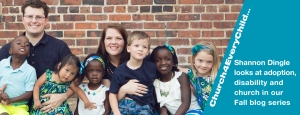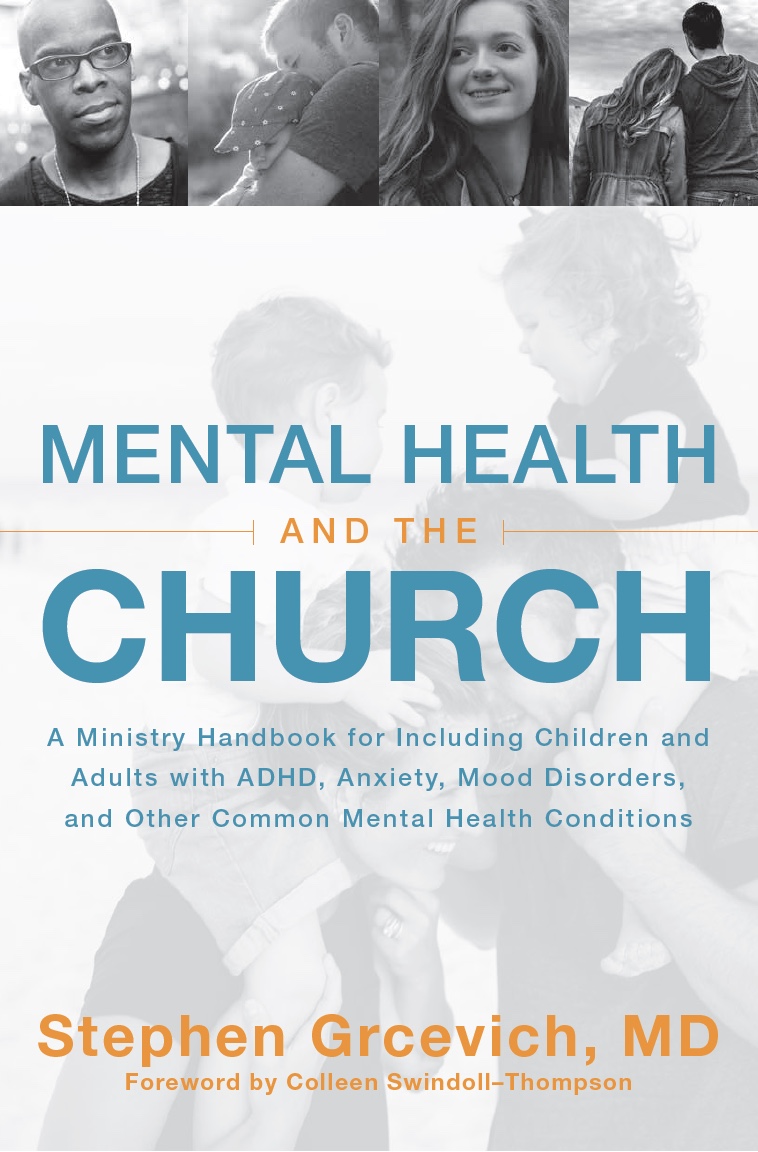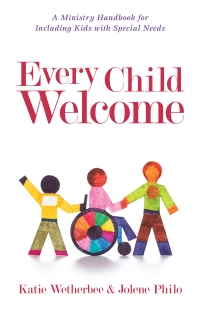Where do I start in commenting on the report on the ABC TV News Magazine 20/20 on the use of medication for kids in the foster care system?
I thought the program presented a very unrealistic picture for prospective foster parents. At the beginning of the segment, several very cute kids spoke of negative experiences with multiple medications while in foster care and communicated the message that what they really needed (instead of medication) was someone to love them and talk to them. On a couple of occasions during the show, we’re given idyllic pictures of parents praying together with foster kids they’ve welcomed into their homes, with video of two young boys on the day their adoption was finalized. What caring adult with the time and the means wouldn’t want to rescue kids from the experiences described in the program…their experiences in their families of origin and their experiences with medication in the foster care system?
One rule of thumb in analyzing media stories, books and articles about kids and mental health…any content that presents controversial issues in a very black and white manner- all good vs. all bad-probably misrepresents the subject material. This program is no exception.
Before commenting further…a little bit about my professional background. I served as the Medical Director of the largest residential treatment center in Ohio for kids with severe emotional disturbances for my first six years out of child psychiatry training. In my next job, I served for six years as the Medical Director of a large, not for profit children’s mental health center where hundreds of kids in foster care in one of our state’s largest counties received treatment. At that time, the county served by the center was very forward-thinking in strategizing how to best serve kids with severe emotional or behavioral disturbances and sought to develop systems of care to meet the needs of as many children and youth as possible in the least restrictive environment possible.
With that said, here are some thoughts to ponder:
 What are these kids doing that leads foster parents and case workers to take them to see a physician for medication? Many of the kids placed in foster care are very damaged as a result of physical abuse, sexual abuse and/or neglect. They frequently exhibit extreme behavior associated with post-traumatic stress symptoms or attachment problems. Let’s also keep in mind the genetic component of this…who would beat or molest or neglect their own child? Parents who struggle with anger management, self-control and/or substance abuse are more likely to have their kids taken away. You’ll have more children with serious mental illnesses in foster care because their parents had serious mental illnesses contributing to the circumstances that led to foster care.
What are these kids doing that leads foster parents and case workers to take them to see a physician for medication? Many of the kids placed in foster care are very damaged as a result of physical abuse, sexual abuse and/or neglect. They frequently exhibit extreme behavior associated with post-traumatic stress symptoms or attachment problems. Let’s also keep in mind the genetic component of this…who would beat or molest or neglect their own child? Parents who struggle with anger management, self-control and/or substance abuse are more likely to have their kids taken away. You’ll have more children with serious mental illnesses in foster care because their parents had serious mental illnesses contributing to the circumstances that led to foster care.
At the agencies where I’ve worked, children and families had to be receiving other mental health services as a precondition for being referred to me. I can’t think of a mental health agency in our area that operates differently. Kids receiving medication at agencies contracted with Medicaid are most often referred by therapists or case managers. They’re not receiving medication to the exclusion of therapy.
Why were some of these foster kids in 26 placements? Because their behavior often became so extreme that the child could no longer care be cared for safely.
The irony of serving kids who have been severely neglected or abused is that the love and attention they crave often triggers the maladaptive patterns of behavior that result in removal from foster care placements. I’d see a recurring pattern among kids in our clinic…Our kids would do very well in their first 3-6 months in a new foster care placement-the “honeymoon” phase. The closer the kids would get to their new foster parents, the more anxious they’d become at the prospect of being abandoned by their new family. These subconscious or unconscious fears would lead to increasingly provocative patterns of unacceptable behavior that appeared calculated to “test” the willingness of the family to care for them. These behaviors frequently included pathological lying, inappropriate sexual behaviors, urinating or soiling in inappropriate places, suicidal threats or self injurious behaviors.
I remember one school-age boy many years ago who was in his eleventh foster placement, with a family living on a farm. He discovered $2,000 in cash that his foster mother had been saving in a secret location in their home. He chose to take the money outside on a very windy day and began throwing dollar bills in the air in response to his foster mother’s attempts to discipline him for breaking a house rule.
My referrals came from desperate requests by parents or case managers in search of solutions for unmanageable behaviors that threatened the child’s foster placement.
Not all mental health professionals are created equal. Compared to other medical specialties, there are vast differences in competency between psychiatrists and staggering differences in the quality of training and clinical competency of the people doing therapy.
Many of my younger colleagues in child psychiatry aren’t getting appropriate training in how to do thorough assessments that go beyond assigning diagnoses but explain WHY kids are experiencing symptoms and leads to logical conclusions about the full range of interventions and services that might be helpful. Some child psychiatrists do a fabulous job. Others are sloppy, take lots of short cuts, and choose to turn a blind eye to safety concerns associated with the medication they prescribe, especially weight gain and metabolic effects of second-generation antipsychotics.
As a general rule of thumb, physicians with the strongest commitment to maintaining a standard of care are, in my experience, less likely to accept the constraints on autonomy that result when one chooses to work in a mental health agency.
 It’s the system. I’d argue that the mental health treatment kids receive in foster care is a harbinger of what everyone might expect in a publicly-funded health care system. Many of the therapists working in these centers are fresh out of training and stay only long enough to get the required supervised hours to practice independently. Because of the demand for psychiatric services, the social service administrators who run these agencies frequently limit the time psychiatrists can spend with kids and families.
It’s the system. I’d argue that the mental health treatment kids receive in foster care is a harbinger of what everyone might expect in a publicly-funded health care system. Many of the therapists working in these centers are fresh out of training and stay only long enough to get the required supervised hours to practice independently. Because of the demand for psychiatric services, the social service administrators who run these agencies frequently limit the time psychiatrists can spend with kids and families.
Short-sighted budget cutbacks can pose barriers to kids receiving the best care. I was speaking with a colleague last month who works in a mental health center…he reported to me that Medicaid will no longer routinely pay for assessments lasting more than two hours. (In my office, most assessments of new patients require three hours or more.) Physicians frequently aren’t paid for the time involved in obtaining information from schools and other caregivers, coordinating with the child’s therapist or case manager, or making recommendations to the child’s social worker.
Docs are trained to DO something. Having done this for a living, I can see where some of my colleagues experience an enormous temptation to whip out the prescription pad when confronted with a kid from a psychosocial train wreck situation becomes a danger to themselves or other people in the home. Often there’s no designated case manager, the assigned therapist has nine months of experience and is utterly ineffective, three families are backed up in the waiting room and their next twenty minute opening for follow-up is in two months.
Physicians frequently encounter incredible pushback from therapists, schools and parents when tapering kids off their medication. Schools may be reluctant to provide supports for kids without medication that helps maintain self-control in school at the price of rages, tantrums and meltdowns outside of school. Parents are often afraid of kids becoming more violent or aggressive off medication, even when the use of such medication is associated with serious side effects. I suspect most psychiatrists have greater fear of being sued for suicidal or homicidal behavior following discontinuation of medication than fear of prescribing medication that might lead to such an outcome.
When kids in crisis get admitted to hospitals, the hospitals are under tremendous pressure to justify the need for treatment by adding or changing medications on a daily basis. Parents and caregivers are frequently confused when one doctor in a crisis situation insists that medication cocktails are absolutely necessary and an outpatient psychiatrist questions the need for such medication. Following a crisis, parents and physicians are often reluctant to stop medication initiated during the crisis.
 Too many physicians fail to appreciate how medication can make children worse. The foster kids described in the 20/20 story don’t end up in research studies. They’re too messy.
Too many physicians fail to appreciate how medication can make children worse. The foster kids described in the 20/20 story don’t end up in research studies. They’re too messy.
Typically, the study designs required from drug companies seeking permission to market their products as safe and effective for children and teens exclude patients who have symptoms of more than one disorder. The negative effects of medication described in the story typically occur when a drug prescribed for one condition exacerbates symptoms of another condition…i.e., ADHD medication increasing irritability in kids with anxiety. Typically, most drugs are approved on the basis of short-term (4-12 week) studies that fail to adequately account for long-term health risks. In the case of the antipsychotic medication that produced the weight gain described in the story, most of the kids in the studies that led to FDA approval had been previously treated with other medications from the same family. As a result, the weight gain reported was FAR less than that experienced when the medication is prescribed to children and teens for the first time.
Compounding the lack of knowledge of negative effects of medication in children is the decision by the Federal Government to discontinue funding of clinical trials of commonly used medications in children in order to invest in basic science research on genetic and environmental risk factors for mental illness.
The treatment featured in the program is incredibly expensive and frequently unavailable. Residential centers such as the one depicted in the 20/20 story are incredibly expensive. A year of residential treatment could cost $100-200K per year. In some smaller counties, the cost of placing one child in such treatment might equal the cost of outpatient services for ALL of the other children in need in the county. When there’s money to pay for residential treatment, there may be waiting lists for beds. Kids may wait six to twelve months or longer for residential placement. While children are on waiting lists, social workers, therapists and parents are often begging physicians to try anything to keep kids safe and stable in placement after other treatments have failed.
My purpose in writing this is to help parents and churches go into foster care ministry with their eyes open. Foster care ministry is an incredibly noble calling. Lots of kids are on way too much medication with way too many side effects with problems for which medication is likely to be of little benefit. Unfortunately, the implication of the 20/20 report that loving parents and the absence of medication will generally lead to happy endings for kids in foster care with problems that led to psychiatric referrals is at the very least incredibly naive, and at worst, a deliberate misrepresentation of reality.
Most recently updated March 2, 2016
***********************************************************************************************************
 Check out Shannon Dingle’s blog series on adoption, disability and the church. In the series, Shannon looked at the four different kinds of special needs in adoptive and foster families and shared five ways churches can love their adoptive and foster families. Shannon’s series is a must-read for any church considering adoption or foster care initiatives. Shannon’s series is available here.
Check out Shannon Dingle’s blog series on adoption, disability and the church. In the series, Shannon looked at the four different kinds of special needs in adoptive and foster families and shared five ways churches can love their adoptive and foster families. Shannon’s series is a must-read for any church considering adoption or foster care initiatives. Shannon’s series is available here.





Is there actually scientific evidence that mental illness is genetic and that parents are abusive becase of menal illness.
LikeLike
Hi Paty,
There are hundreds of studies I could cite looking at the genetic basis of different mental health conditions.
Here’s an abstract of a study from earlier this year examining the relationship between maternal mental illness and abuse/neglect leading to foster placement:
Child Abuse Negl. 2011 May;35(5):309-18.
Maternal mental illness and the safety and stability of maltreated children.
Kohl PL, Jonson-Reid M, Drake B.
Source
Brown Center for Injury and Violence Prevention, George Warren Brown School of Social Work, Washington University in St. Louis, One Brookings Drive, St. Louis, MO 63130, USA.
Abstract
OBJECTIVE:
Children of mothers with mental illness are at risk for multiple untoward outcomes, including child maltreatment and foster care placement. The purpose of this analysis was to determine the association between maternal mental illness and children’s long term safety and stability.
METHODS:
A multi-sector administrative dataset from the Department of Social Services (DSS) and Department of Mental Health (DMH) was analyzed. The sample was 4,895 low income families (mother and child dyads) first reported to child welfare in 1993 or 1994. Families were followed until March of 2009. Dates of new report and foster care placement were obtained from DSS data. ICD-09 or ICD-10 diagnostic codes were obtained from Department of Mental Health data. Schizophrenic disorders, episodic mood disorders, anxiety disorders and personality disorders were examined.
RESULTS:
New reports were more likely for children of mothers with mental illness, regardless of diagnosis. While overall 67% of children had a new report over the course of their childhood, rates ranged from 80 to 90% for children of mothers with mental illness and occurred within a shorter time frame than for other children. In the multivariate models, mood (HR=1.41, p<.001) and anxiety disorders (HR=1.32, p<.05) placed children at greater risk for new reports. The proportion of children with foster placements was more than double for children of mothers with mental illness than for other children. In the multivariate model, anxiety disorders were strongly associated with the risk of placement (HR=1.75, p<.001).
CONCLUSIONS AND PRACTICE IMPLICATIONS:
Important differences in safety and stability were found between children of mothers with and without mental illnesses, as well as some variability across diagnoses. Since these mothers had already received services our findings suggest that access is not enough. The services they are receiving or have received may be an ineffective approach to helping them parent safely.
Copyright © 2011 Elsevier Ltd. All rights reserved.
LikeLike
Hi Paty,
Here’s a link to a search I did through the National Library of Medicine using the search terms “mental illness” and “genetics.” 77,633 articles come up.
http://www.ncbi.nlm.nih.gov/pubmed?term=mental%20illness%20genetics
LikeLike
thank you! working at Beech Brook for 19 years, I appreciate your explaining this to those who don’t get it.
LikeLike
Extremely insightful, Steve! I intend to share this with some ladies I know in foster & adoption ministry.
LikeLike
As always, your information is balanced and compassionate. Thank you so much for sharing your experience and insight with us!
LikeLike